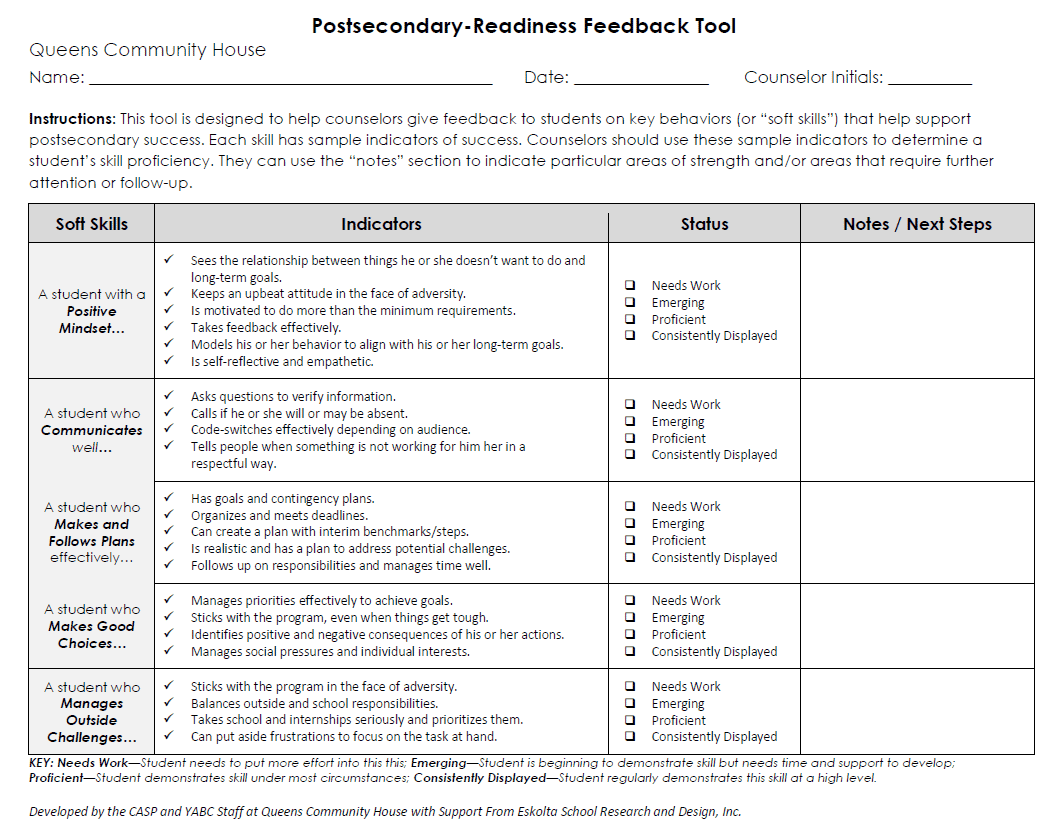What We Do: Design Projects >> Feedback & Assessment
Assessing Postsecondary Behaviors at Queens Community House
Success after high school is not just about knowing how to solve algebraic equations or read certain texts. Academic behaviors such as the persistence and self-motivation to keep trying are also important factors, especially for students moving on to pursue a postsecondary education. At Queens Community House (QCH), staff recognized that if students were not developing these capabilities, their mission would not be realized. QCH has been helping students prepare for college since 1988. Partnering with students in transfer schools and Young Adult Borough Centers who have had a history of struggling in high school, the organization has worked hard to improve academic outcomes and increase students’ access to postsecondary education through counseling and advising.
In 2012, QCH asked Eskolta to help develop tools that would allow counselors and students to assess college-readiness. “For academics, there were clear measures,” says Associate Executive Director Susan Matloff-Nieves, “but evaluating these other ‘soft’ skills…would be difficult without the same defined standards to compare against.” Eskolta Senior School Developer Jessica Furer began her work with QCH by sharing research on some of the noncognitive factors that are not explicitly reflected in test scores. Jessica worked with a team of staff and students from QCH to develop and pilot two tools to assess these factors. The first was a reflection tool designed to allow students to recognize their own attitudes and practices, especially with respect to their beliefs about their own intelligence, their persistence, and their relationships with peers and adults. The second tool, a rubric, was designed to give counselors a way to identify and describe students’ progress toward mastery of key skills.
The development of these tools was a collaborative process that Jessica led for QCH. The final workshop to pilot test the tools prompted a deep discussion about practical aspects of how and when the tools would be best used with students. The group agreed that these rubrics were useful during discussions with students and helped both students and counselors to visualize mastery of the skills and behaviors. Participants noted that this provided a unique opportunity to work with their colleagues to reflect on key ideas behind their practice. Discussing and fine-tuning the instruments with their peers was described as a positive learning experience. Matloff-Nieves agrees: “Although it wasn’t our intention, I think it did have an effect of promoting professional development.”


